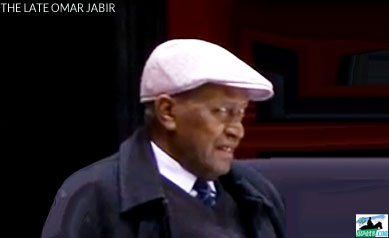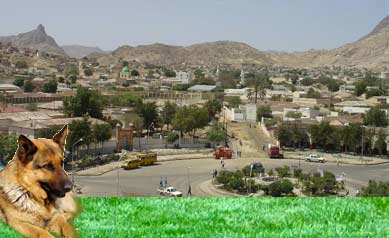Eritrean Parallel Religious Lines
The roots and branches of Eritrean Diaspora seems to point to the mistrust that lingers stemming from their religious parallel lines – Christianism vs. Islamism – any other isms can amicably be ameliorated once this colossal issue is handled with sensitivity, care, and tenderness it so deserves. The other roots and branches that get in the way of making progress over the Diaspora’s socio-cultural & sociopolitical landscape has to do with this fact: we want to be political scientists, psychologists, philosophers, and the like, leaving no room for the professionals who may have something valuable to teach us. Saleh Gadi makes a clear delineation between dialogue & debate as he adds the disposition of some political actors who choose to go into the realms of “assault” instead of conversing – a point well taken. Therefore, allow me to start with the following, if I may speak for myself. Starting with disclosure of sorts is important here for those of us who are part-time activists and who disappear from the scene for seasons on end and expect to make a dent in the political landscape of Eritrea. I am painfully aware of this shortcoming, and it is for this reason I feel there is a gaping hole in my knowledge of Eritrean Diaspora’s political actors or their activities. I will defer the political activities to those who have been in the forefront of the struggle with relentless determination. Saleh Ghadi’s apt observation in this regard is a timely one:
“I also think the political parties should think of this; and if wish to have a sane political environment, those with skills and passion should be in political parties to be more effective–when are we going to develop political parties is such debates remains in the sphere of free-lancing? Add to that our lack of academic and intellectual institutions that should lead this kind of debate, it is scary. We are doing little to develop our politics, why don’t we have association instead of everyone going to politics in an unorganized way? When are we going to identify our individual skills and passion and work there in a specialized manner instead of all of us becoming jack of all trade? That is my worry Amanuel, though I understand the concern and the wish to prepare the ground future eventualities, I wish we would develop (or think about developing) institution. We can start by having specialized institutions, even in the Diaspora though it is not the ideal place.” (Saleh “Gadi” Johar, Nov. 23, 2013 at 11:57 am ).
I take this comment to heart. Saleh Gadi’s comment is spot on. There has to be other calling than political endeavors. Let us take stock and evaluate where our passions and our strength lie and based on that try to pursue those venues rather than stretching ourselves way too thin in areas we know very little about. At this junction, I have zero interest in political organizations of any stripe but I have, to some extent, some interest in the realms of Eritrean traditions, cultures, heritage, religious coexistence, and anything that addresses of humanitarian matters in this context. Something I have great passion for tends to be culture, literature, language, culture, and peripherally, religion. Today’s muse is on the last two.
The erroneous assumption a lot of people make tends to be in the way they see cultural traditions as this static phenomenon when in fact they are very much dynamic. Therefore, the challenge then rests in how strong is one’s culture relative to religion. In Eritrea’s case, the Eritrea that we have left behind, perhaps, years ago (I am speaking here from my perspective as someone who left home decades ago) has evolved a great deal – its language has evolved, its norms, its values, and the like have evolved while sizable number of Eritreans who are in Diaspora have also evolved to amalgamate the cultural tradition of their host societies. Now, of course, the kind of culture that has been created in exile, for example, in the Middle East tends to be influenced by the religion adhered in that region, which is, for the most part, Islam. In other words, religion trumps culture so much so that the children who grow up in these regions have strong religious leanings.
Way before Al-Qaeda http://en.wikipedia.org/wiki/
Some of us may still believe in the power of culture over religion, but the reality in our part of the world seems to suggest the reverse, where religion has time and again shown to trump tradition and culture. We can choose to bury our head in the sand into thinking that Eritrea’s circumstance is unique, but I am here to argue, it is not. Where to Eritrea and Eritreans heretofore? Belatedly reading about two brothers, born and raised in Britain and who were of Eritrean descent and who died while fighting in Syria’s civil war was mind numbing event to process much less to make sense out of madote.com). This news sent my memory reeling way back to 1996 when I wrote three short pieces in dehai under the title “JIHAD vs. Common Sense.” No worries, these are no longer than a page each. All it took was a simple Google and viola retrieved them all. Dehai was a virtual space and place where many of us used to think out loud, if you will, as we wrote our thoughts half constructed and dehayans basically responded with their impressions of each other’s’ ideas. So, the poor quality of the pieces notwithstanding, they do address the danger of political Islam taken to its extreme. In 1996 nobody had the patience to read more than two pages on their computer screens–accessing the Internet through dial-up was a challenge in itself – we have come a long ways now in adapting to reading for hours on end as though we were leafing through the pages of a book.
This is not a thread-bare comparison between Al-Qaeda and Jihad and it is not a game of semantics, but a mere evolutionary process that political mutation must be met with equal force and magnitude, not through means of arms and cannon fodders, but through our collective wisdom vis-à-vis the rule of law that will render such shadowy terrorists who tend to mutate faster and quicker the weaker the bond that ties the two people together.
In Eritrea’s context the most effective way to fight such potential pitfall from taking place is not retroactively fighting it but proactively making it impossible, so impossible, in fact, by making Eritrea an ideal place where the rule of law reigns, where democratic system is applied, where Muslims and Christians alike live in harmonious coexistence at the helm of which must be an unequivocal separation of Church (Mosque) and State.
Now, how does one avoid such potential pitfall from occurring? Clearly, there will be some elements within Eritrean circles that would play into that perception to ignite a wedge within Eritrean proper. The best antidote to this is an inclusive governance system; unlike that of PFDJ whose domination in the governing body of Eritrean political landscape has been abysmal, to which I make a passing remark in one of the links below. About a decade or more later, Ahmed Raji’s article that was posted at Awate made it explicitly clear using evidence in how systematically PFDJ discouraged Eritrean Muslim from playing their role in the Eritrean nation building reminiscent to that of Haragot Abbay who used to discourage Muslim Eritreans in Eritrea and suggesting that going to places like Saudi Arabia in search of employment being their best option. Now, I certainly do not want to give this perception disproportionate weight, but acknowledging its existence in the past is a good beginning.
That said, I think it is really high time that Eritreans not only be cognizant of this fact but also must make sure such perception from being incepted in the future, post-Isayas Eritrea that is. Let me make it unequivocally clear here that religion will have a role to play in public life in Eritrea but it cannot be one where it becomes the political governing body. Singling out the Orthodox Church in this as a religious institution that has stood to the tyrant on moral ground, at least since 2004 to a point of imprisonment of Abune Antonios, is an exemplary moral crusade all other religious institutions should emulate. Religion belongs in our homes and in our respective communities; it should also rise up to national scene when the need calls for it as the conscience of its society when it sees it going rampantly errant as has been the case with the current political menace in Eritrea. But political and governing matters must be delegated and relegated to the political system that has the capacity to separate itself from any religious dogmas and rule its people fairly and in equitable manner.
Herein follow the links. If you are so inclined you can read the responses and counter responses by delving deeper into the discussion thread.
JIHAD vs Common Sense Part I (http://www.ephrem.org/dehai_
JIHAD vs Common Sense Part II (http://www.ephrem.org/dehai_
JIHAD vs Common Sense Part III (http://www.ephrem.org/dehai_



Awate Forum